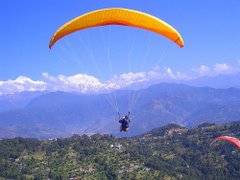 Pamela Philipose
Pamela PhiliposeFor over 17 years, the Bhutan refugee crisis has lingered on. In 1990-91, when 106,000 bonafide Bhutanese citizens of Nepali extraction, the Lhotshampas, found themselves rendered stateless and forced to live in the seven UNHCR-run refugee camps in southern Nepal, the world chose to ignore what is one of the largest attempts at ethnic cleansing in this region. India has pretended the problem does not exist, but the untenability of this stand was underlined on Monday, when Indian security forces had to open fire to prevent Bhutanese refugees from Nepal attempting to enter Bhutan. They can only do this by crossing India.
The process of stripping the Lhotshampas, many of whom have been living in Bhutan for over two centuries, of their citizenship rights was calibrated over a decade. Bhutan has three major ethnic groups: the Drukpas, the Sharchops and the Lhotshampas. The Drukpas, although less than a quarter of the population, have ruled Bhutan since Ugyen Wanchuk was crowned the ‘Druk Gyalpo’ (dragon king) in 1907. The Sharchops are ethnically related to local hill tribes, while the Lhotshampas are of Nepali origin.
There is also a religious divide here. The first two categories are Buddhist, while the Lhotshampas are largely Hindu. An accurate estimation of the numbers of these communities is difficult to get, but a 1980 census put the Lhotshampas at 53 per cent of the population, with the Sharchops accounting for 30 per cent and the ruling Drukpas, 17 per cent. Perhaps it is their sheer presence that led to the Lhotshampas being targeted.
First came the Marriage Act of 1980, which penalised Bhutanese for marrying “non-Bhutanese”. Five years later, a citizenship act stripped many Lhotshampas of their citizenship rights. In 1989, the policy of ‘One Nation, One People, One Language, One Dress’, came into force. The Lhotshampas were increasingly subjected to eviction, and deprived of their assets until many among them were forced to flee the country. Today, an estimated one-sixth of Bhutan’s original inhabitants live in refugee camps.
During a visit to Nepal last December, I had an opportunity to speak to some of them and gained glimpses into cramped lives denuded of meaning. Every family is entitled to a hut measuring 14 by 8 feet. Since they are refugees, no one is entitled to employment. Children are given a basic education, but have few dreams of the future. They end up drifting around, much like their parents. As one man revealed, “Since refugees cannot work, the able-bodied among us just hang around cracking our knuckles.”
This 17-year impasse remained unbroken. Last year, the US ambassador to Nepal, James Moriarty, indicated that America was willing to take 60,000 refugees. But many in the community believe that such a move will divide them and end forever any prospect of their repatriation to Bhutan. They believe that their right of return must be recognised before they can even consider resettlement options.
India’s studied silence is perplexing. Says Ram Kumar Shrestha, coordinator of the Kathmandu-based Friends of Bhutan, “India has the requisite experience and has played a role in Bhutan’s development. So why has it allowed this situation to continue? Today, the world looks up to democratic India. It needs to be more active on the issue of the Bhutanese refugees, for its own credibility.”
There are other considerations, too. The camps could become a serious security concern for India. Apart from this, the current drift means that India is forced to repulse every attempt by the refugees to make their way back home, like it had to do on Monday. This raises the threshold of anti-India feelings in the region.
Formally, India maintains that this is a matter for Nepal and Bhutan to sort out, and prefers to conform to the Treaty of Peace and Friendship signed with Bhutan in 1949, under which India has undertaken not to interfere in Bhutan’s internal affairs in return for Bhutan agreeing to remain guided by India in its foreign policy. But India may have to revisit this stance given the untenable situation in the camps and rising tensions stoked partly by changes within Bhutan. The latest attempt of Bhutanese refugees to cross over into Bhutan was provoked by the idea of participating in a mock election exercise there. As the refugees have argued, Bhutan’s ongoing exercise in ushering in democracy will make little sense if one-sixth of its population remains in the wilderness.
Given its rapport with Bhutan, India holds the key to resolving one of the most intractable issues of this region and one that has extracted a terrible human cost.
Source: The Indian Express

No comments:
Post a Comment